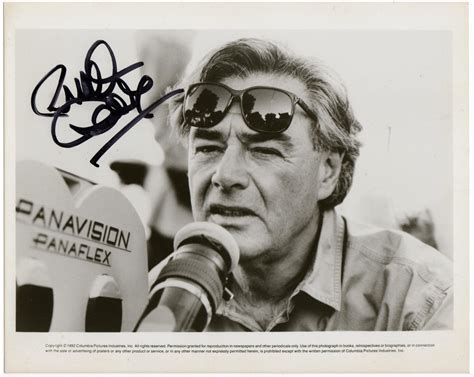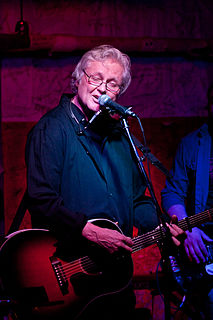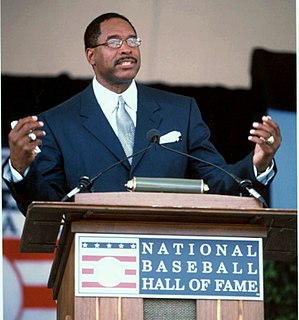A Quote by James Baldwin
The occurrence of an event is not the same thing as knowing what it is that one has lived through. Most people had not lived -- nor could it, for that matter, be said that they had died-- through any of their terrible events. They had simply been stunned by the hammer. They passed their lives thereafter in a kind of limbo of denied and unexamined pain. The great question that faced him this morning was whether or not had had ever, really, been present at his life.
Related Quotes
There were times when it appeared to Dorian Gray that the whole of history was merely the record of his own life, not as he had lived it in act and circumstand, but as his imagination had created it for him, as it had been in his brain and in his passions. He felt that he had known them all, those strange terrible figures that had passed across the stage of the world and made sin so marvellous, and evil so full of subtlety. It seemed to him that in some mysterious way their lives had been his own.
In 2011, when my father passed away - I had my daughter first; I had her on January 24, and I had a seizure during the delivery. I lived through that, and five weeks later, my father died suddenly of a heart attack, and I lived through that. And then my daughter had surgery, and I lived through that.
The fire of my tribulations had not simply been pain to be endured. It had been an agent of transformation. After all that I'd been through, I'd changed. Not for the worse, I was pretty sure--at least not yet. But only a moron or a freaking lunatic could have faced the things I had and remained unfazed by them.
How did it happen that now he could see everything so clearly. Something had given him leave to live in the present. Not once in his entire life had he come to rest in the quiet center of himself but had forever cast himself from some dark past he could not remember to a future that did not exist. Not once had he been present for his life. So his life had passed like a dream. Is it possible for people to miss their lives the way one can miss a plane?
The utter failure came at the Crucifixion in the tragic words, 'My God, my God, why hast thou forsaken me?' If you want to understand the full tragedy of those words you must realize what they meant: Christ saw that his whole life, devoted to the truth according to his best conviction, had been a terrible illusion. He had lived it to the full absolutely sincerely, he had made his honest experiment, but it was nevertheless a compensation. On the cross his mission deserted him. But because he had lived so fully and devotedly he won through to the Resurrection body.
Ruthven surmised that he had hit upon some of the central deceptions which had wrecked him and reduced him and so many of his colleagues to this condition. To surmise was not to conquer, of course; he was as helpless as ever but there was a dim liberation in seeing how he had been lied to, and he felt that at least he could take one thing from the terrible years through which he had come: he was free of self-delusion.
He lifted his gaze to the framed photograph of Tanya and him taken on their wedding day. God, she had been lovely. Her smile had come through her eyes straight from her heart. He had known unequivocally that she loved him. He believed to this day that she had died knowing that he loved her. How could she not know? He had dedicated his life to never letting her doubt it.
She smiled. She knew she was dying. But it did not matter any longer. She had known something which no human words could ever tell and she knew it now. She had been awaiting it and she felt it, as if it had been, as if she had lived it. Life had been, if only because she had known it could be, and she felt it now as a hymn without sound, deep under the little whole that dripped red drops into the snow, deeper than that from which the red drops came. A moment or an eternity- did it matter? Life, undefeated, existed and could exist. She smiled, her last smile, to so much that had been possible.
Rock of the ages been a really interesting job. It's been exhausting. It's been the hardest thing I've ever done because it's just so big, and I haven't had a lot of time. And I'm just kind of blowing through this. And everybody's, like, happy, and giving thumbs up. Most of the actors have said "this is the best role they've ever had." So you know, that's important to me.
I knew Bill Cunninghamn personally, in the way that most people know him - you don't really know that much about him. So I had never been in his apartment, as most people hadn't. I really had no idea how he lived. I knew he lived in Carnegie Hall, but that was it, and I didn't really understand. I knew that he worked hard, I just didn't realize that that was what he does, that's basically all he does
He was about to go home, about to return to the place where he had had a family. It was in Godric’s Hollow that, but for Voldemort, he would have grown up and spent every school holiday. He could have invited friends to his house. . . . He might even have had brothers and sisters. . . . It would have been his mother who had made his seventeenth birthday cake. The life he had lost had hardly ever seemed so real to him as at this moment, when he knew he was about to see the place where it had been taken from him.
I could send myself right back to the day that I wrote "Angel Of The Morning," how it felt. I had a buzz through me that morning that was so powerful. I knew I had done something that meant something, because of that feeling. It wasn't a question of whether other people liked it ... I loved it. To me, it had to be one of the most important love stories of all time.
In my kind of reporting work, you don't parachute in after some big, terrible event, which is important and has to be covered, but offers only a glimpse. It's the kind of work in which you ask, what is my understanding of how the world works, and where can I go to see these questions get worked out in individuals' lives? That was really the question for me: whether I had anything to add to what had already been written.





































